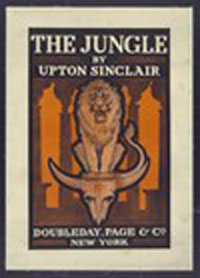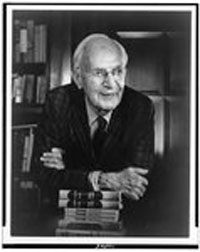
Source: The Jungle Book Cover, Upton Sinclair, Library of Congress
At the beginning of the 1900s, writers became involved in social issues. Many writers became investigative reporters called muckrakers. They contributed to the Progressive Movement by investigating and exposing some of the ills of society. One of the writers of this time was Upton Sinclair, who wrote the novel The Jungle. Read the introduction below to gain an idea of what the novel is about.

Source: The Jungle Book Cover, Upton Sinclair, Library of Congress
The novel The Jungle was written during a period in American history when trusts were formed by multiple corporations. These trusts controlled various industries by establishing monopolies that reduced competition and fixed prices. These business practices also led to harsh, dangerous working conditions.
After writing a few unsuccessful novels, Upton Sinclair became famous in 1906 after The Jungle exposed the conditions in the U.S. meatpacking industry. The Jungle was a historical fiction exposé of the working conditions endured by the immigrant laborers in the meatpacking industry in Chicago. Going undercover, Sinclair spent seven weeks inside the meatpacking plants gathering details for his novel.

Source: Upton Sinclair, Library of Congress
The Jungle did not change the lives of immigrant workers as Sinclair had hoped. However, the novel still played an important role in the Progressive Movement. It raised public awareness of the unsantitary conditions in food processing plants and the resulting danger of tainted food. In response to public outrage, Congress passed the Pure Food and Drug Act (1906) and the Meat Inspection Act (1906).
Activity: Based on what you read above, answer the following questions in your notes about The Jungle.